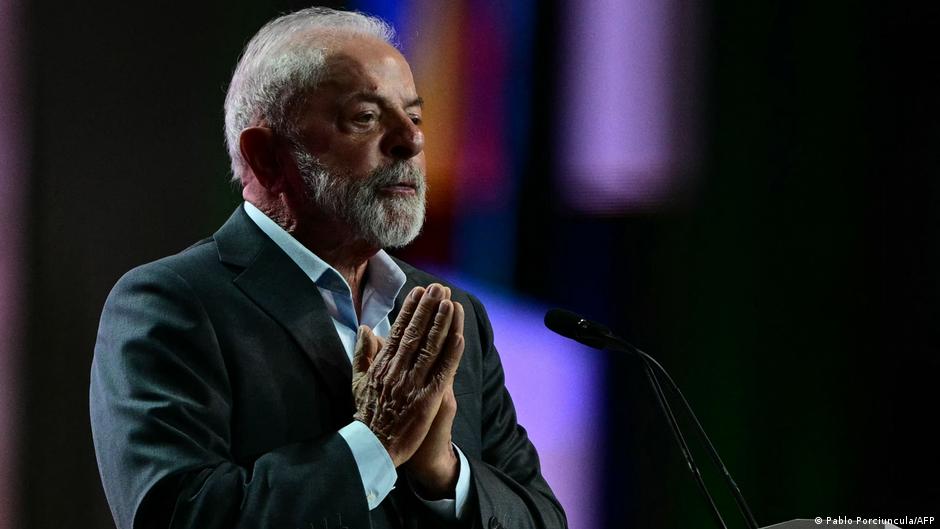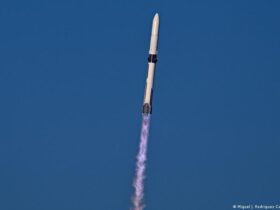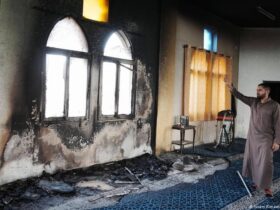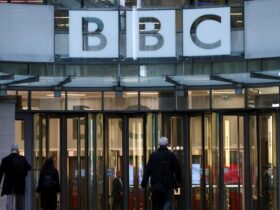Last year’s UN climate summit in Baku, Azerbaijan, opened with the country’s President Ilham Aliyev calling oil – a fossil fuel that increases global warming along with gas and coal – “God’s gift.”
The opening statements at this year’s COP30 climate gathering, held on the edge of the Amazon rainforest in Belém, struck a very different note. Brazilian President Luiz Inácio Lula da Silva gave a defiant speech declaring that now is the time to confront climate change deniers.
Lula criticized climate science deniers, saying, “Climate change is no longer a threat to the future. It is a tragedy of the present.” He stressed that the crisis is having the greatest impact on developing countries and poor communities already suffering from extreme weather.
Referring to the drive to decarbonise the economy, he warned that the climate emergency was deepening the inequality between “those who can live with dignity and those who must die”, adding, “We must have a fair transition.”
There is now pressure on negotiators from more than 190 countries who have descended on Belém to make progress over the next two weeks on curbing record-high emissions and rising global temperatures. At the same time, climate change has slipped down the agenda against the backdrop of geopolitical tensions and emerging conflicts around the world.
right direction, wrong speed
UN climate chief Simon Still said the world has made progress since adopting the Paris Agreement in 2015, which aims to limit global temperature rise to well below 2 degrees Celsius (3.6 Fahrenheit) and ideally to 1.5C above pre-industrial levels.
Still said countries have successfully bent the global emissions curve downwards, but warned that efforts need to accelerate quickly.
“I’m not sugarcoating it,” he said. “We have a lot more work to do. We must move very, very, fast on both cutting emissions and strengthening resilience.”
Before the Paris Agreement, the world was on track for up to 3.5C of warming by 2100. Current national climate action plans – known as Nationally Determined Contributions (NDCs) – will limit warming to about 2.5C, assuming countries implement them fully. Yet many nations have failed to update their NDCs as required ahead of COP30.
A new UN analysis of national pledges estimates that global greenhouse gas emissions will fall by about 12% by 2035 compared to 2019 levels – a slight improvement from the 10% forecast published last month. The update includes new commitments from China and the EU, but scientists say a 60% reduction is needed by 2035 to stay on track for 1.5C.
“We are moving in the right direction, but at the wrong pace,” Lula said.
CO of action
While it remains uncertain whether countries will pursue an ambitious final agreement by the end of the summit, host country Brazil has framed this COP as one of “implementation” – a moment to turn promises into concrete action.
Still said this should include a managed transition away from fossil fuels, tripling renewable energy capacity and doubling energy efficiency gains. He added countries should also agree on indicators to measure progress on climate adaptation and ways to boost financial support.
Last year’s COP29 summit concluded with an agreement that at least $300 billion per year should flow from developed countries to developing countries by 2035. But many observers argue that this amount is far less than required. A key task in Belém will be to identify how to scale that target to about $1.3 trillion (€1.12 trillion) annually.
This amount, Lula said, was “much cheaper than waging a war.
Defense of science, belief in multilateralism
Amid geopolitical tensions, multiple looming conflicts and the absence of the United States – the world’s second-largest emitter – from the conference, Still urged countries to focus on cooperation.
“In this area of COP30, your job is not to fight each other – your job is to fight this climate crisis together,” he said.
André Correa do Lago, Brazil’s top climate diplomat and president of this year’s conference, called on negotiators to embrace mutirao – a Portuguese word of indigenous origin that means collective effort.
Both Lago and Lula underlined the importance of protecting science and multilateralism. Lula warned that in “the age of fake news and misinformation”, both were under attack. He said this “COP of Truth” should help counter those tendencies.
A report released last week found that COP-related disinformation has increased by 267% in recent months, increasing the need for credible communications.
“Either we decide together, by our own choice, or change will be imposed on us because of tragedy,” do Lago said in a letter to negotiators on the eve of the summit. “We can change. But we have to do it together.”
cost of inaction
Still warned that failing to raise ambition comes with devastating economic and human costs. “None of your countries can afford to do this as climate disasters depress GDP by double digits,” he said.
His comments came as a super typhoon hit the Philippines and just weeks after a deadly storm hit Jamaica and eastern Cuba.
“While climate disasters destroy millions of lives, it will never be forgiven when we already have the solutions,” Steele said.
Stumbling on action, he said, “A mega-drought that ruins national crops, causing food prices to rise, makes no economic or political sense.”
Stell emphasizes that the tools to deal with the crisis already exist. Wind and solar power are now the lowest-cost energy sources in about 90% of the world, and global investment in renewable energy – which overtook coal as the largest source of electricity this year – has doubled that of fossil fuels.
“The economics of this transition,” “The costs of inaction are just as undeniable,” he said.
Edited by: Jennifer Collins






Leave a Reply